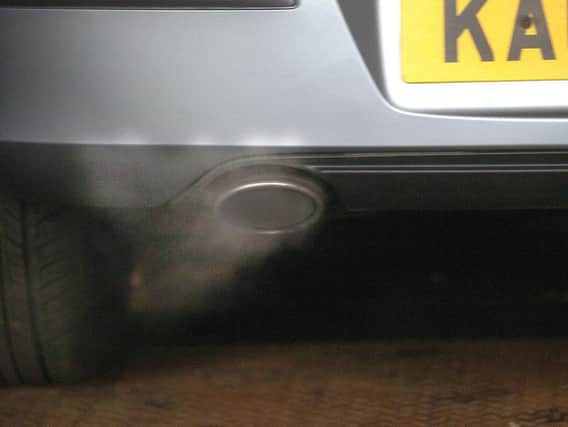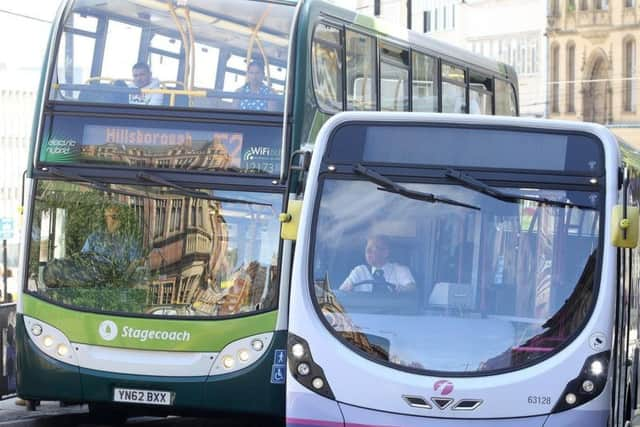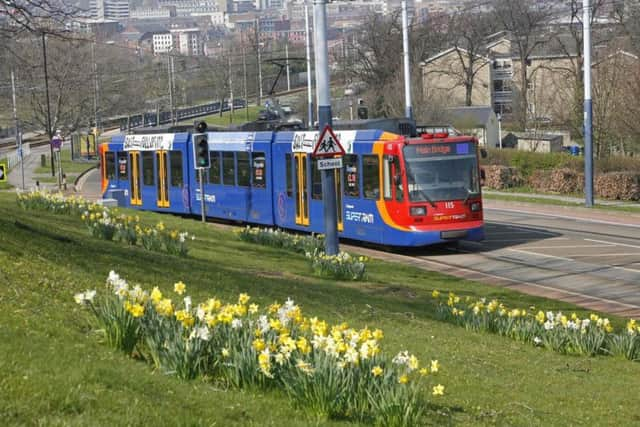Workplace parking charges, tram network extensions, better cycle lanes and charge on polluting vehicles suggested in drive to boost transport and cut pollution in Sheffield


The council has drawn up two masterplans - a Clean Air Strategy and the Sheffield Transport Vision - to tackle pollution and make sure the city can cope with an increase in the number of trips people will make in cars, on trains and buses in the coming years.
The transport plan warns of the dire consequences of 'doing nothing' - by 2024 bus journey times could lengthen by a third, travelling on the inner ring road in peak hours could take 20 per cent longer and many junctions would be 'overwhelmed with traffic, making gridlock events almost routine'.
Advertisement
Hide AdAdvertisement
Hide Ad

"The working day for many people would be extended as a result of longer commuting times," says the document, which will be discussed along with the air strategy at a meeting next week.
In addition, by 2043 the number of rail passengers at Sheffield station is expected to double, without HS2 taken into account.
Streets may be ranked by hierarchy, the plan says, with some allocated more space for public transport and others with separate cycle lanes.
"Key corridors for private car trips will have fewer constraints," says the document.
Advertisement
Hide AdAdvertisement
Hide Ad

Measures to 'effectively manage' parking are also suggested, including a potential workplace parking levy - a charge on employers who provide spaces for their staff.
'Robust business cases' could be worked up for new local railway stations and extensions to the tram network out to Stocksbridge, the Royal Hallamshire Hospital and Endcliffe.
And the council would work with operators to make buses a 'more attractive choice', potentially introducing routes where services would only stop to pick up or drop off passengers.
"Should our partnership arrangements not deliver on our wider ambitions we will, if necessary, lobby the Sheffield City Region Mayor - to be elected in 2018 - to review the way bus services are delivered."
Advertisement
Hide AdAdvertisement
Hide Ad

Charging private car users to cut pollution has been ruled out. However, a study will consider whether a 'clean air zone' is needed, what area it would cover, and whether certain types of vehicles such as buses, coaches and lorries should be charged.
Anti-idling zones around schools around schools are to be rolled out and transport companies will be urged to reduce emissions by using green technology.
There are around 450 buses operating in Sheffield, of which only nine per cent have Euro 6 engines, the cleanest type available. The proportion is expected to double to 18 per cent next year.
The strategy says Sheffield is in breach of EU limits on nitrogen dioxide that should have been met at the start of 2010. The main routes into the city centre are of 'particular concern' and the railway station is an area of high pollution, caused by diesel trains and taxis. People breathe in the most pollution from exhaust emissions.
Advertisement
Hide AdAdvertisement
Hide Ad

Some of Sheffield’s worst pollution hotspots are around schools, the report says, citing research that showed children exposed to air pollution could be stuck with smaller lungs
and health problems for life. Tinsley School was closed and moved away from its old site near the M1 because of fears pupils were breathing in too much dirty air.
The city is 'unique in its geography', built amid steep hills, which poses a challenge when encouraging people to choose different forms of travel, such as cycling.
Coun Jack Scott, cabinet member for transport, said: “I recognise some of the solutions to our air quality challenge may not be easy, cheap or popular, but they are required and they are right if we are to achieve our vision for the fairer city we want to build together. It is the poorest and most vulnerable in our city - the very young and very old - who are most affected by dirty air."
Advertisement
Hide AdAdvertisement
Hide AdHe said pollution was a 'major drain' on Sheffield's economy, costing £200 million every year, adding: "A city with clean air, an efficient public transport system, high levels of public travel and healthier citizens will have a stronger, fairer economy.”